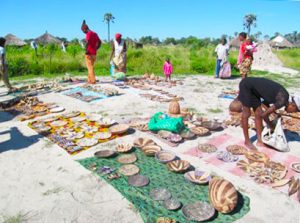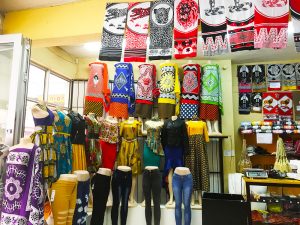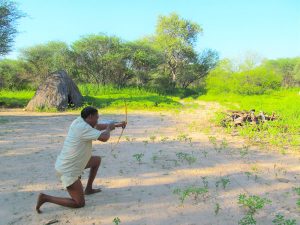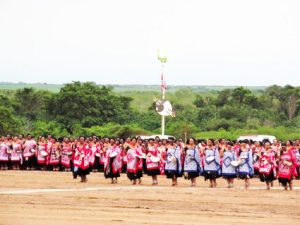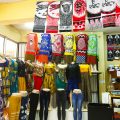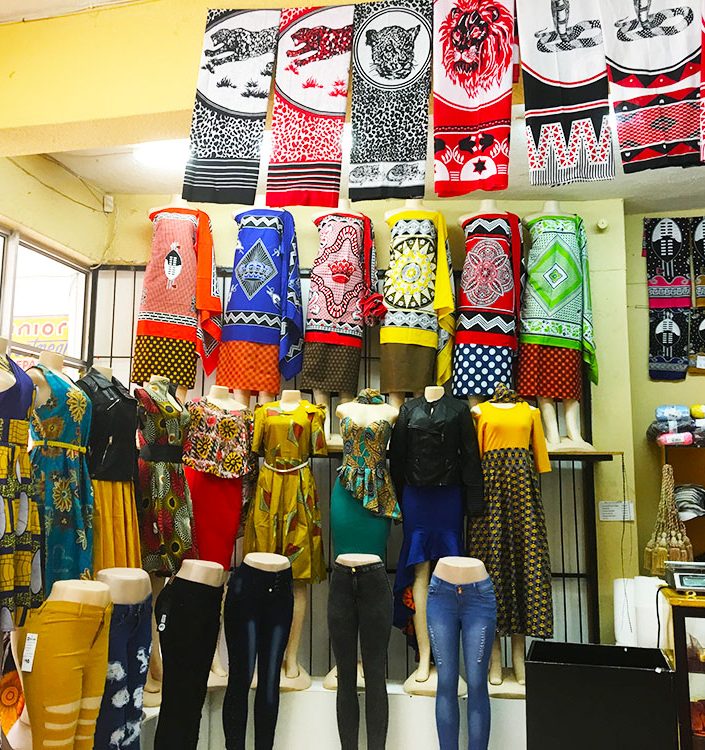
Dispatch Report 3
Junko Maruyama
22/01/2017-31/3/2016
– Centre for African Language Diversity, University of Cape Town
-Mbabane and its surrounding area, Swaziland
-Ghanzi and Maun, Botswana
-Riezlern 6, Cederberg, South Africa
1.
This research project aims to elucidate contemporary dynamics and reshaping process of “traditional culture” and “ethnicity” of several groups in Southern Africa. Taking a case-sensitive approach to San communities in Botswana and South Africa, and the Swazi communities in Swaziland, the following three aspects are focused; 1. Land rights movement, 2. Traditional authority and leadership, 3. Traditional cultural tourism. The local strategies, interaction among the neighboring ethnic groups, and the relations with national and global communities in the three occasions are investigated. The research highlights the shared experiences among the different target communities reflecting macro level southern African political economical situation and history, as well as the distinctiveness of each communities in in different national and historical contexts.
During my stay in South Africa, I was given some opportunities to present my on-going study. One was focusing on so-called “Bushman/San tourism” in Botswana, presented for a workshop on participatory tourism in Africa held in a center promoting San culture and education. Together with local academics, some of the staffs of the center from local San communities joined the discussion. The research on the cultural tourism in South Africa was conducted at the center as well. The other one was a presentation entitled “Changes of personal names of G|ui and G||ana San and their socio-historical contact with neighboring Nharo San” at the 6th annual meeting of Riezelern organized by Prof. Brenzinger, Director of Centre for African Language Diversity of University Cape Town.
Swaziland:
The historical changes of annual royal ceremonies in Swaziland were researched, with special attention to the Marula-fruits harvest ceremony at a royal residence. Furthermore, the transition on “traditional attire” for the ceremonies was elucidated by using historical documents and photos collected from Swaziland National Archive, National Museum, and local historians. The academic networking with the archive, the museum and the University of Swaziland were established as well.
I visited the several tourist sites of “Bushman/San tourism” to understand its’ diversity and current situations, as well as the sites for “Basket tourism” for getting whole picture of the cultural tourism in Botswana. Interviews were conducted with NGOs and private companies working for the San’s cultural activities, as well as at the San community that I have researched for long time.
3.
The field research on “Bushman tourism” was one of the most exciting part of this study. It was found that the diversity of the historical relations between the San and their neighbors created various style of the cultural tourism. Looking at the similarities and differences between the Bushman tourism and other community tourism was also good experiences.
Participation in the malura festival in Swaziland was impressive as well. Women groups came from all over the Swaziland gathered in the royal residence and practiced the “Swazi tradition” such as dance, song, dress, and food culture for 3 days. The staffs of National Archive and National Museum were very helpful and shared their wealth of knowledge.
With an aim to understand the meaning of “traditional culture” for the local peoples, the field research in this term focused on historical development and current dynamism of the cultural tourism in Botswana and Swaziland. This was my last research for this project and sufficient research materials on the topic were collected.
The comments and discussion to my presentations in South Africa were valuable for this project. Particularly the discussion with the San individuals working for tourism sector was highly suggestive. Establishment of network with academics in Swaziland was one of the important achievements of this project.
5.
Based on the data collected by my fieldwork in 2016-2017 under this research project, currently I am writing a paper on the issue of land rights in Southern Africa as well as a paper on the cultural tourism in Botswana. Some of the results will be presented at a workshop that is planned by this program.

